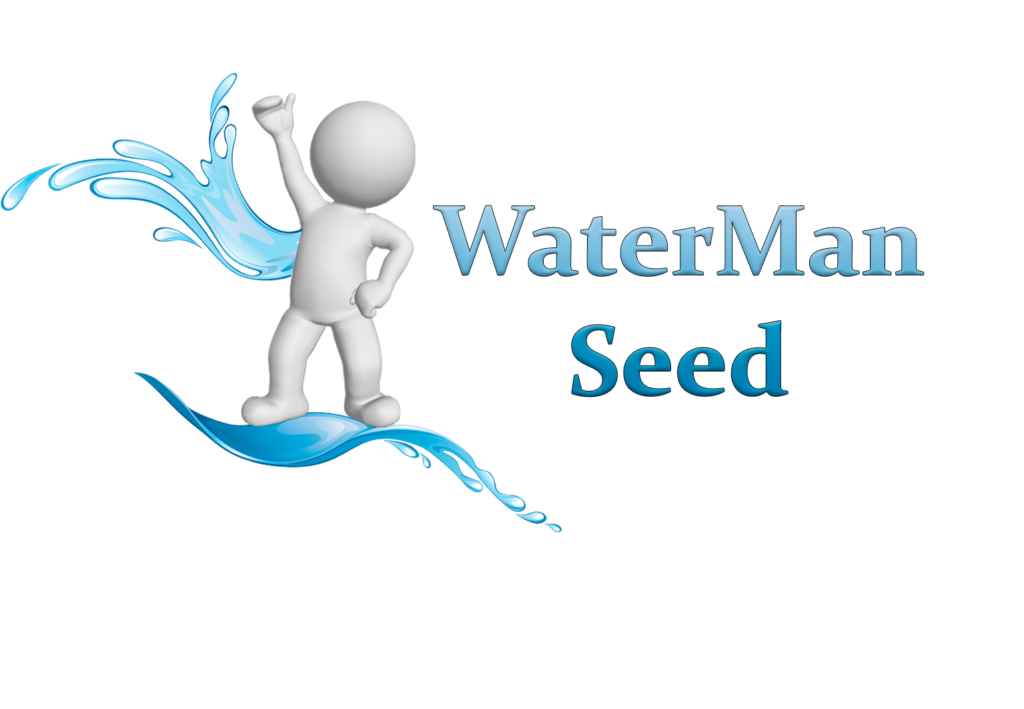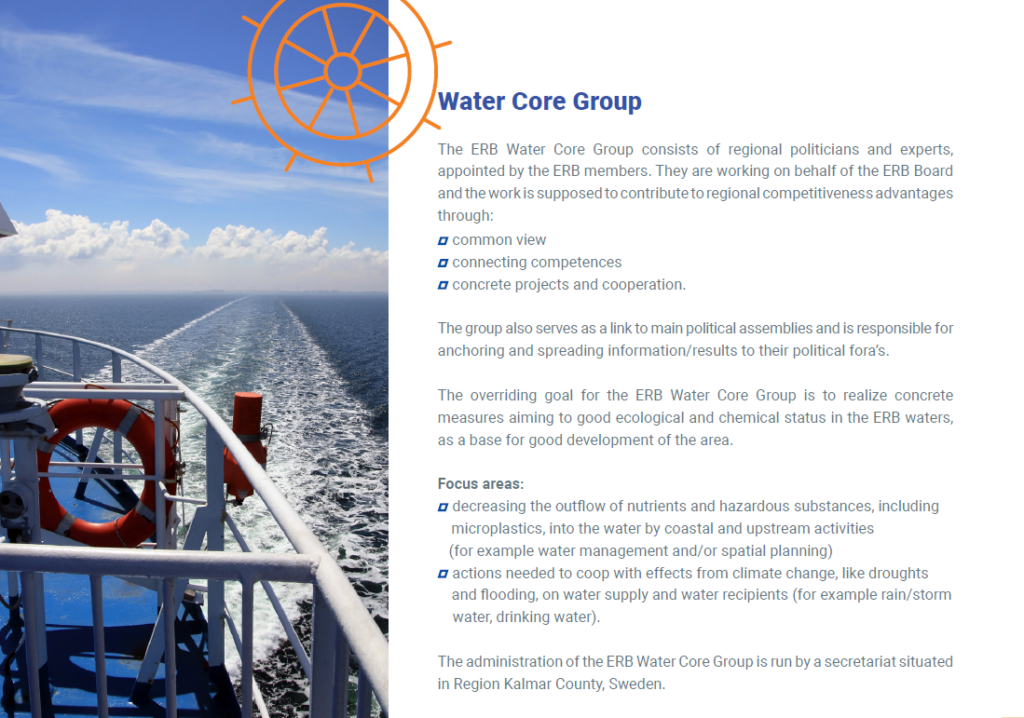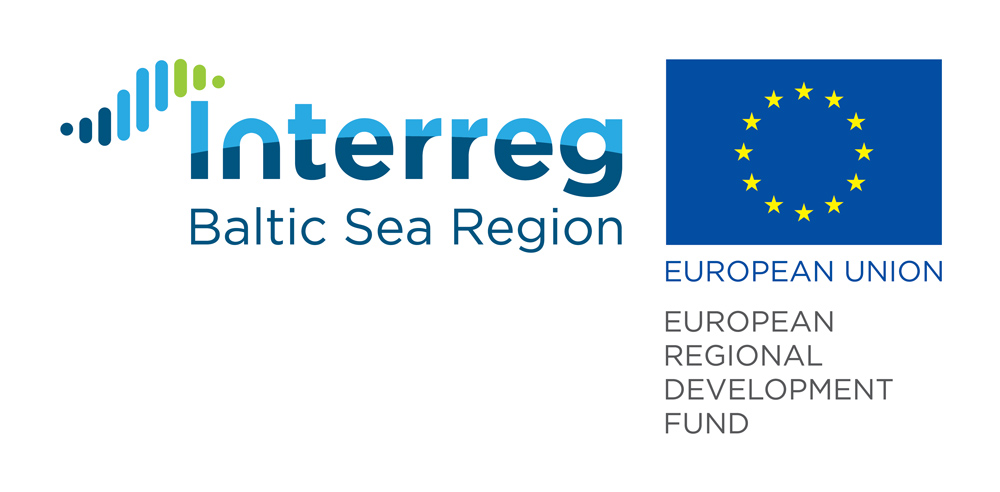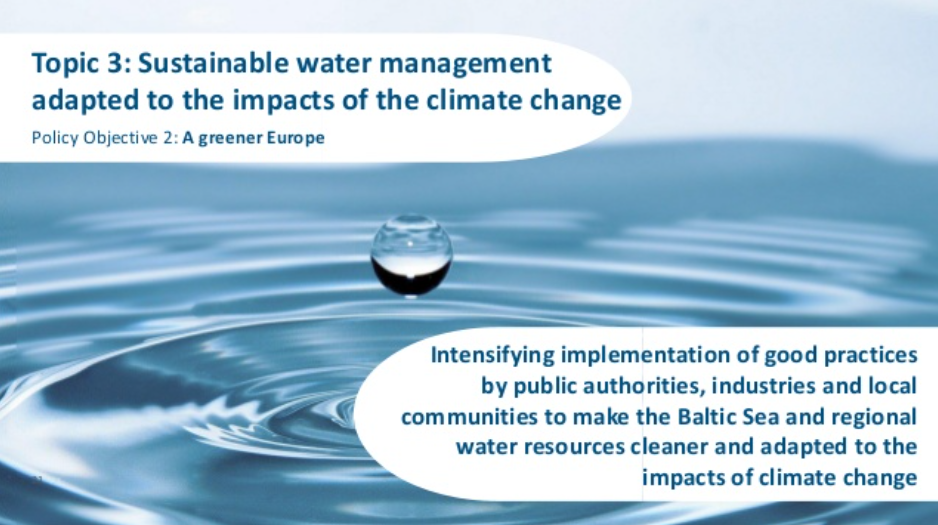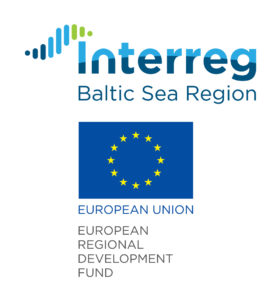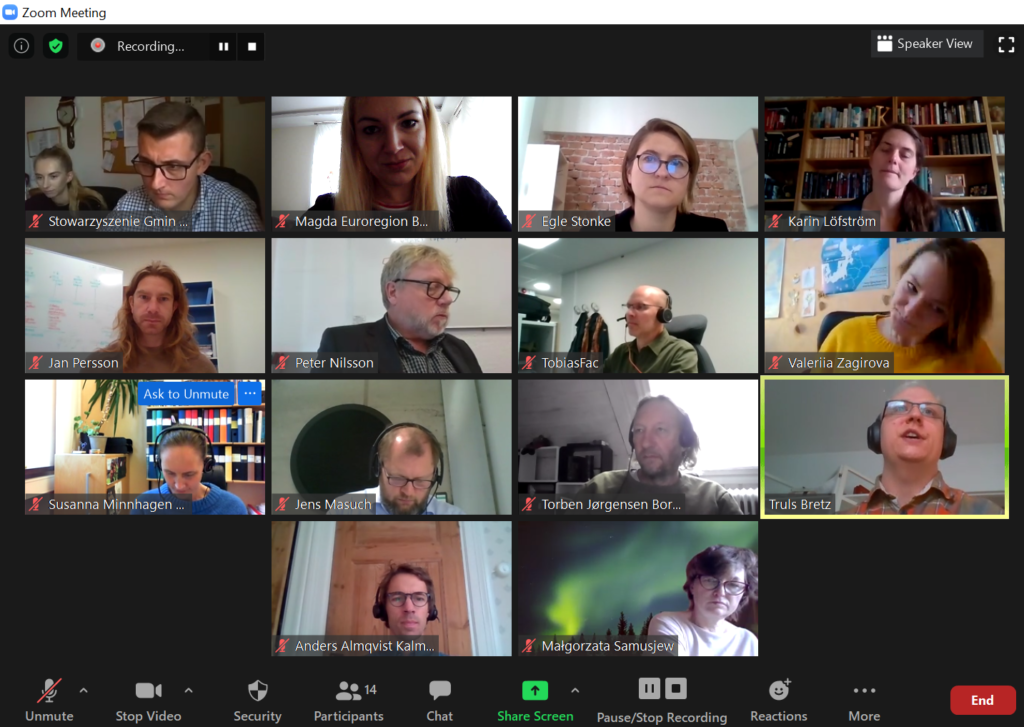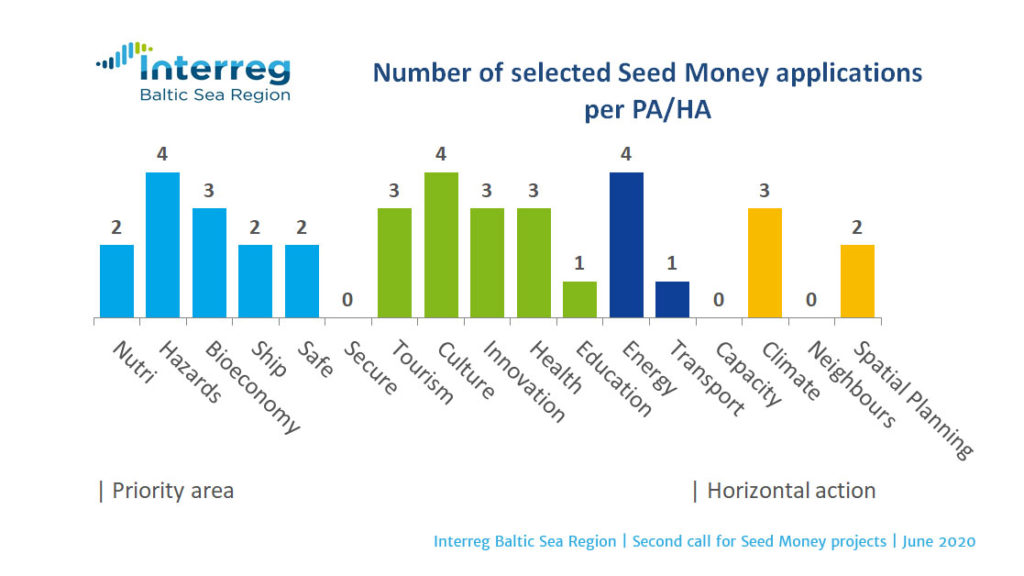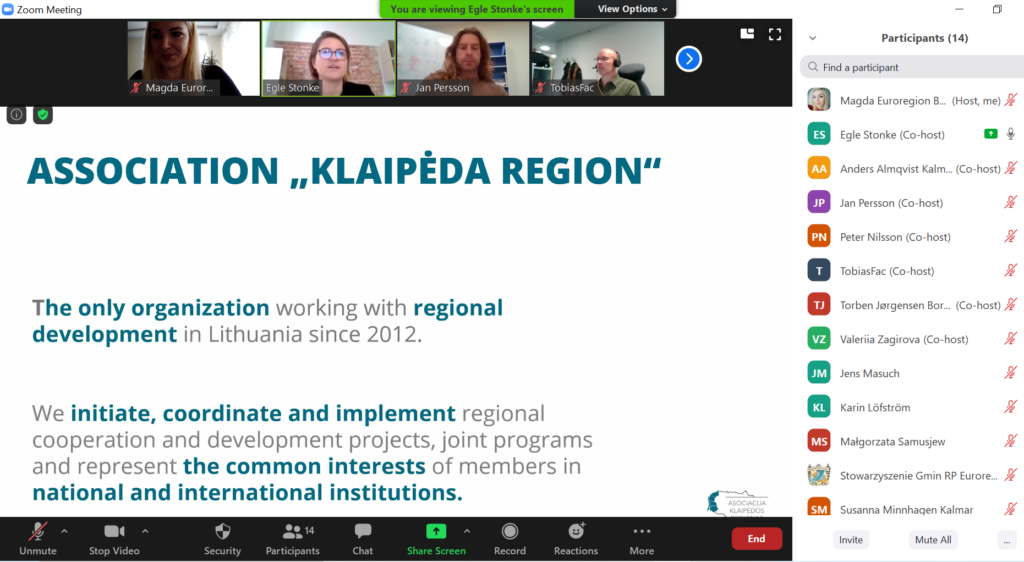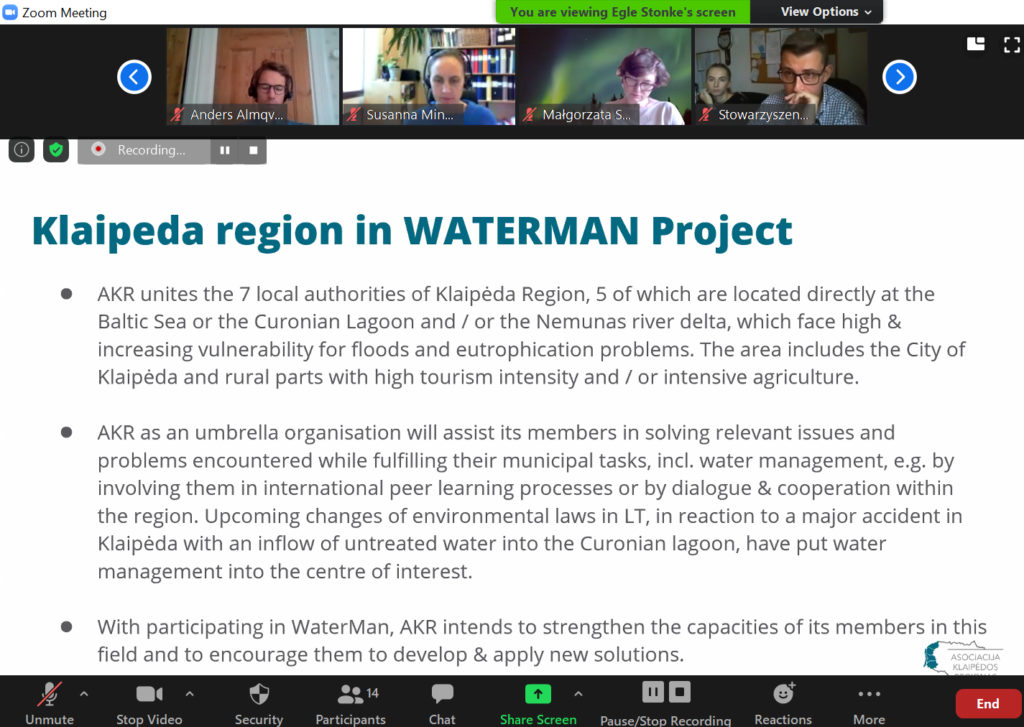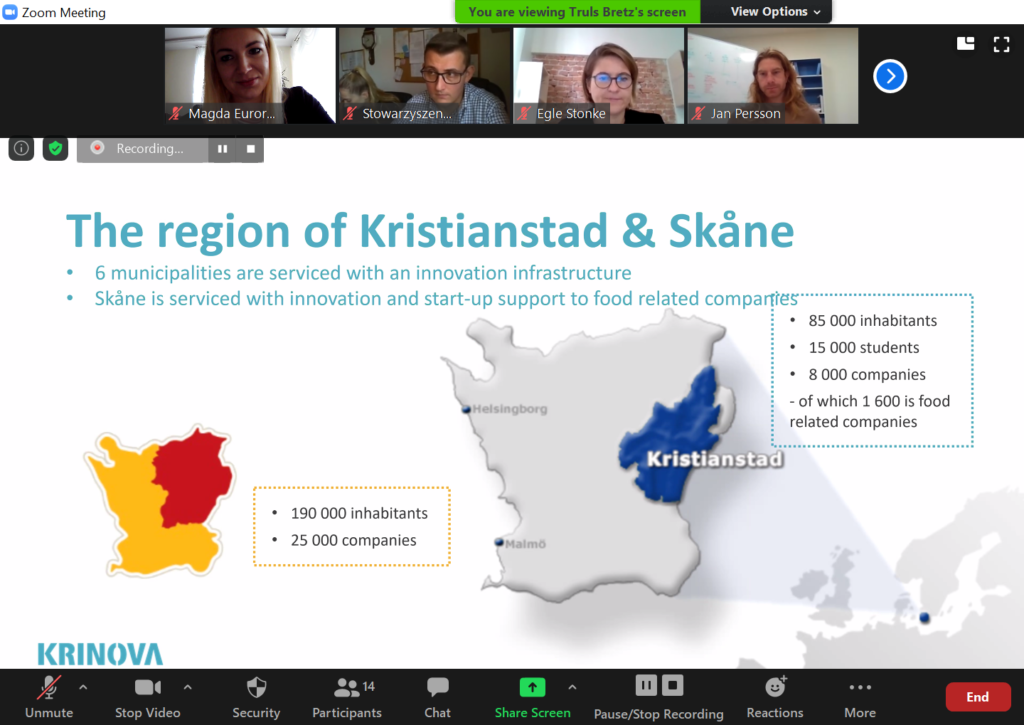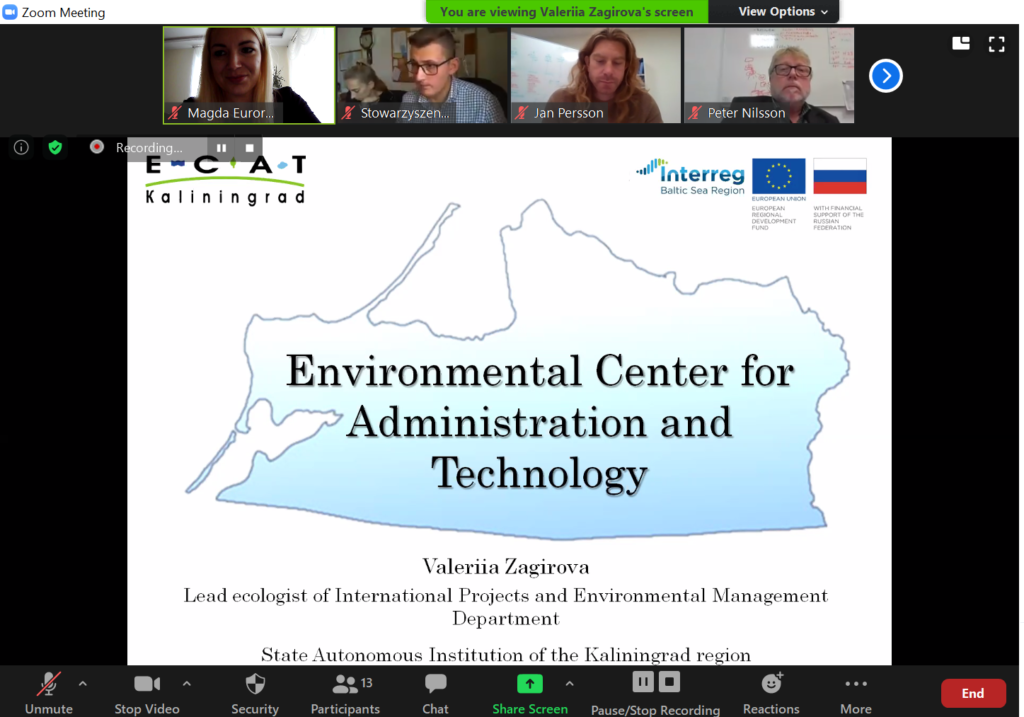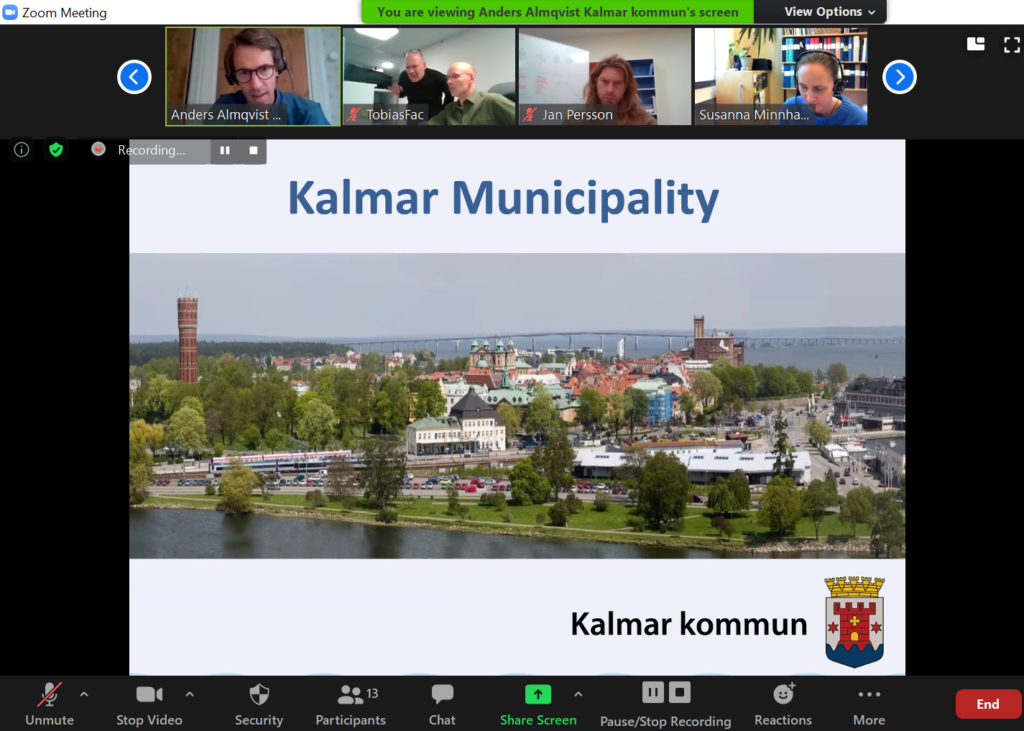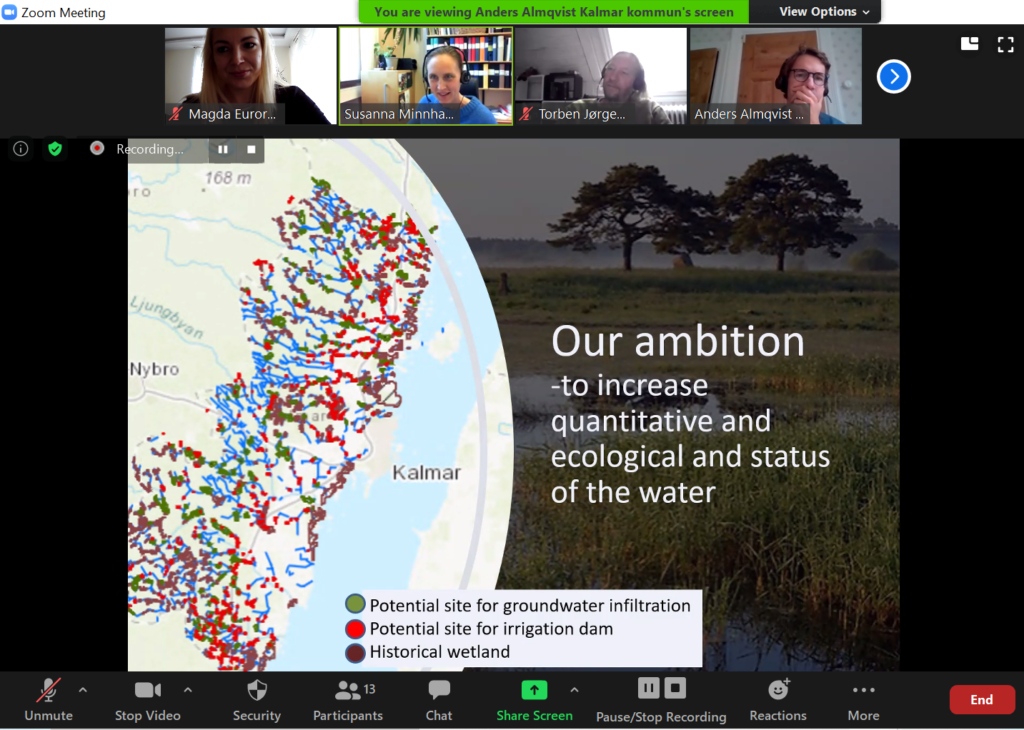On 31st March 2021 WaterMan project partners and associated parties related to the works of ERB Water Core Group met together to discuss the works on the Interreg Baltic Sea Region Seed Money Facility project “WaterMan”.
PROBLEMS & OPPORTUNITIES TO BE ADDRESSED in WaterMan Project
Reducing the outflows of nutrients & hazardous substances to surface water, groundwater and the Baltic Sea, in particular, is the main concern of water management in the BSR and will remain its foremost task in the future. At the same time, the effects of climate change pose new challenges to water supply: Droughts limit in certain periods the quantity of water for various uses (e.g. drinking water, agriculture). Floods impair the quality of drinking water – and thus indirectly its quantity, too. Studies (e.g. by SMHI) predict that problems linked to water shortage will become even more severe in the future.
The two mentioned tasks cannot be addressed as a question of either / or. The ambition must be both to meet environmental goals with regard to outflows of nutrient & hazardous substances at a high level as well as to secure water supply at the same time.
Possible synergies between them, however, were hitherto not widely addressed despite obvious potentials: If effluent water is retained, re-circulated & re-used, water supply will not only be more secure & climate-resilient. At the same go, this will be an effective way to reduce outflows of nutrients & hazardous substances.
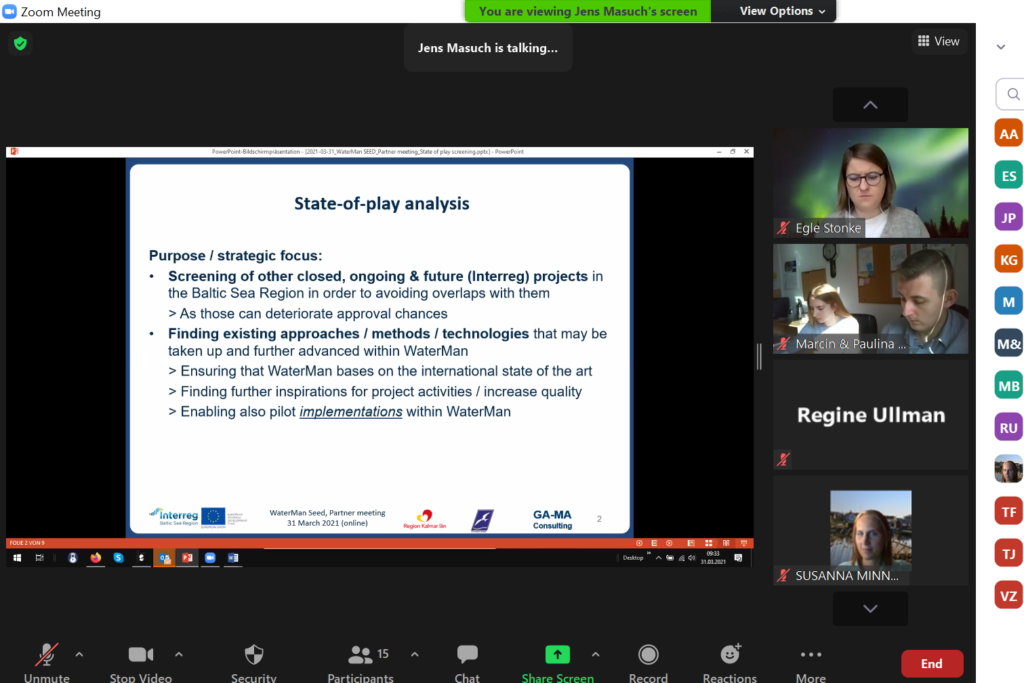
OBJECTIVES & SPECIFIC FOCUS OF THE PROJECT
WaterMan seeks to develop and promote new circular approaches to reduce outflows of nutrients & hazardous substances to surface water, groundwater and the Baltic Sea, which contribute to the climate-resilient water supply at the same time. The project will thereby focus on opportunities & perspectives that are not sufficiently addressed yet:
Decreasing outflows of nutrients & hazardous substances and climate-resilient water supply are still tackled separately, in most cases. WaterMan strives for integrating these fields of action and approaches that address both challenges at the same go.
Circular approaches do exist already in this field. However, they focus merely on the re-use of sludge & nutrients. WaterMan will go further and seeks to add to them ways to recirculate & re-use the effluent water itself.
In the centre of attention will thereby be measures & techniques to re-use water from wastewater treatment plants (WWTPs) and the retention of water before flowing into the Baltic Sea. Thus, fewer groundwater resources are needed and the water supply becomes more climate-resilient.
The geographic focus will be on those parts of the BSR, where droughts & floods challenge water supply to a particular extent – and that hence may outstandingly benefit from re-circulation & re-use of water (e.g. coastal tourism hotspots = high drinking water demand in times potentially scarce supply, river deltas with intensive agriculture, coastal cities etc.).
WaterMan addresses the local level. The primary target groups are municipalities & water companies. The aim is to develop concrete if possible low-cost approaches that they can implement with existing resources – so that replication is likely. A specific focus is on wastewater treatment plants (WWTPs), many of which need reconstruction in the
near future to meet revised national EU Directive thresholds of nitrate & phosphate.
Consequently, WaterMan does not remain on the level of studies & concepts but strives for developing approaches and solutions to a “ready-to-use” level by concrete pilot actions & investments.
